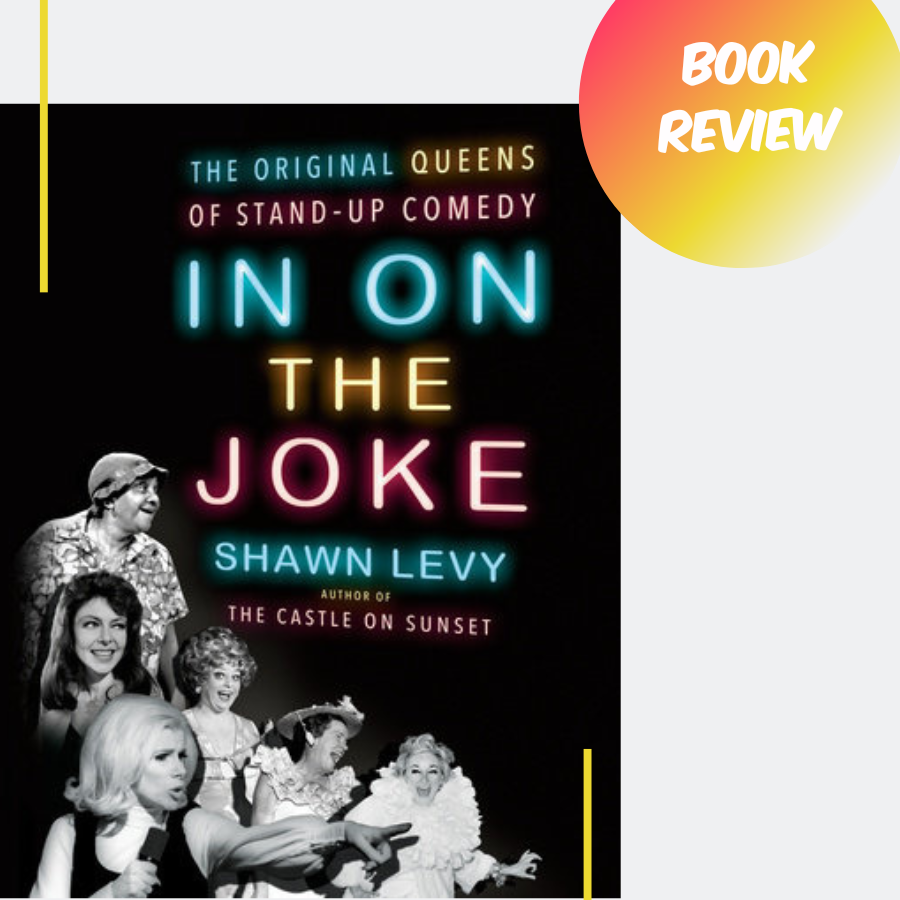“Women aren’t funny.”
It’s a phrase that’s all too common if you’re chronically online. It’s also become a rallying cry for a generation who may have never seen Phyllis Diller on a Dean Martin Celebrity Roast or Jean Carroll’s slew of appearances on the Ed Sullivan Show.
Enter In On The Joke, a book in which Shawn Levy shows how women comedians of the 20th century doubled as social commentators and (sometimes unintentional) activists. These women actively challenged sexist claims of obscenity, which often relegated them to niche spaces in the comedy world.
“She didn’t care where she was she would pull those teeth out, and to me, this freedom to be yourself, for seventy seven years is the highlight of life to me because, you know, it’s okay to be gay, it’s okay to be individual, it’s okay to have a point of view. She made me realize that whatever you did you had to stand on your own two feet and know who you are.
Whoopi Goldberg on Moms Mabley (1894 – 1975)
Levy opens the book by profiling Moms Mabley, a Black and openly gay vaudeville entertainer who only received attention from white and mainstream audiences later in life. Despite the indisputable mark she left on comedy and Black representation, little is known about her — including the year she was born. As Mabley became more popular, she faced pushback from members of the affluent Black community, who used respectability as a cudgel and deemed her brand of risqué comedy low-brow. Notably, Levy dedicates a significant portion of In On The Joke to Mabley, explaining how she worked her way up comedy circuits where she was made to wear blackface, eventually presenting an award alongside Kris Kristofferson at the 1974 Grammys.
In On The Joke also showcases how social movements often stifled these women’s comedy in the name of respectability. Levy explains how some Black comedians circumvented obscenity laws, as they were often ignored by white law enforcement. Meanwhile, comedians like Belle Varth used Yiddish to present her blue material in the ’50s and ’60s. Around the same time, certain feminist circles dismissed Rusty Warren’s sex-friendly “Knockers Up” routine as regressive to their movement. (It’s worth noting that Warren said she saw more women coming to her shows during this period of social awakening.)
Throughout the book, Levy lays out the pivotal role Black and Jewish (Varth, Jean Carroll, Joan Rivers, Elaine May) women had in comedy history. How these marginalized women pushed back against gender roles, respectability politics, and racism. Levy notes that many women comedians (Mabley and Phyllis Diller come to mind) did not break into the comedy scene until after becoming mothers and wives. As a result, their comedy often pulled from these experiences.
“My husband always felt that a marriage and career don’t mix. That’s why he’s never worked.”
Phyllis Diller (1917—2012)
A repeating theme in the book is how many women comedians were successful in their own right but actively kept out of male-dominated spaces. Levy mentions how Varth was actively excluded from the Friars Club — a rite of passage among male comedians — only to be the target of sexist jokes in that venue.
The Takeaway
In On The Joke showcases the rich, multifaceted history of women in comedy. It also highlights how women are expected to take on many roles in society and still surpass expectations. Throughout the book, Levy makes the clear point that these women not only sought laughs, but they also fought for — and earned — respect.


